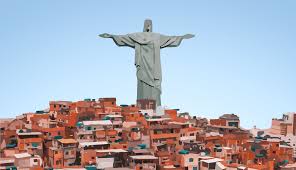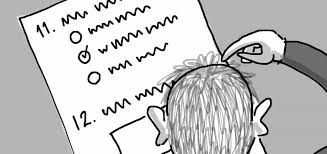Twenty-Sixth Sunday in Ordinary Time
“If your hand causes you to sin, cut it off… if your foot causes you to sin, cut it off … if your eye causes you to sin, pluck it out.” Mk. 9
There’s a story that’s told about some friends who went deer hunting together. The guys separated into pairs, waved farewell to the others, and went their separate ways. That night, one of the hunters returned alone, staggering under the weight of an eight-point buck. “Where’s Harry?” asked another hunter. “Oh, he fainted a couple of miles up on the trail,” Harry’s partner answered. “And you left him lying there all alone and carried the deer back all by yourself?” “Yeah, it was a tough call,” said the hunter, “but I figure no one’s going to steal Harry.”
We laugh at this kind of outrageous story, but what Jesus is saying to us today in our Gospel reading is also outrageous … and completely lacking in humor.
Instead, Jesus uses some of the most gruesome and harsh images found anywhere in the gospels: like cutting off hands and feet; like plucking out eyes; like threats of being thrown into hell “where the … fire is never quenched.”
This kind of alarming and even terrifying language seems almost to come out of nowhere.
After all, these words and images are being spoken by the same Jesus who constantly refers to God as Abba, his loving Father; the same Jesus who draws us word pictures of a father throwing his arms around a Prodigal Son, washing the feet of his disciples, healing the blind and the lame, raising the dead, and calming the seas.
It leaves us scratching our heads and asking: What’s going on here? Why this radical shift? Is Jesus literally telling us to cut off our hands and pluck out our eyes?
The answer is found in the definition and understanding of the word “hyperbole” – the use of extravagant, severely exaggerated speech to make an important point.
I suggest that Jesus uses such dire language, such hyperbole because he truly wants to get our attention, shake us out of our lethargy, and make sure we’re really listening. But, it’s important for us to remember one thing: Even though Jesus may not have intended for his words to be taken literally, he most certainly intended that they be taken seriously – very seriously.
Because what Jesus wants us to understand is this: truly important decisions need to be made by all of us.
Decisions like:
“What has to be cut out from my life right now? What has to be plucked out? What has to be drastically put back into perspective?”
For example, to use the metaphors that Jesus does, the “hand” that Jesus refers to conjures up images of one’s handiwork, that is, what we make or produce, what we do for a living. Especially in a time of rampant unemployment, there are profound economic consequences to “cutting off” the hand that feeds you. This admonition, however, actually addresses the question of ethical issues regarding one’s work.
Ethical questions such as: Employers considering using profits to improve working conditions instead of increasing stock dividends; employees pondering how to resolve the work demands that cause them to sacrifice time they could be spending with their families; unemployed people being tempted to accept a job that conflicts with their moral values: all of these are individuals who hold a figurative knife in their hands, and wonder if they will have the courage to cut.
“Feet” move us toward a destination, a goal. Jesus’ challenge here raises the ethical issue of whether our goals in life are in keeping with being citizens of God’s realm. Followers of Jesus may include college students choosing a major, persons wondering about a career change, retirees considering how they spend leisure hours, parents grappling with how to help their children make moral choices. Are our feet carrying us in the path Jesus lays down for us?
The “eye” symbolizes what attracts our attention. The moral implications of this are wide ranging. What we view through our social media sites, how we use our time, spend our money, establish priorities all point to where the eye is focused.
Those of us who take Jesus’ words seriously have to deal with the awful, awe-filled truth that how we live our lives impacts not just ourselves, but makes a huge difference to those around us who “hear” the gospel by seeing and observing our behavior.
In short, Jesus is telling us in the most shocking words he could find just how important all of this is.
Pope Francis is also reminding us of these same concerns. He’s using very strong language to get our attention, to wake us up, and to alarm us to such an extent that we can clearly hear again the gospel call of Jesus urging us to become a church that “gets out into the streets;” that becomes a “field hospital;” that isn’t merely focused on our individual salvation, but emphasizes as well the protection of the unborn, the elderly, the minorities, the imprisoned, and the immigrants. Together, as a body, as Christ, we can then become what Pope Francis calls a “poor Church for the poor.”
When we start doing this, then our “hands” and our “feet” will be freed, our “eyes” cleared, and our hearts dedicated to the ultimate goal of the gospel so passionately preached by Jesus: a world of justice and peace and mercy.
Ted Wolgamot, Psy.D.
11809194.1
9/24/15




